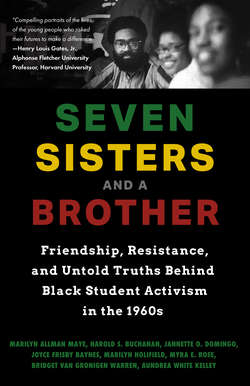Описание книги
The very best audience is contemporary minority college students on predominantly white campuses. They will be most likely to identify with one or more of the authors, by socio-economic or family background, and they have often had to struggle to acquire the confidence to take action in the face of great odds, to demand the respect of institutions where they study. First-generation students will particularly relate to the authors, but also faculty members of color, women, immigrants, as well as white peers, teachers and administrators who are interested in understanding differences and commonalities encompassed within diversity. Today’s youth involved in protest of injustices in the adult world will be inspired by these true stories. And, for the generation of baby boomers who lived firsthand through the activism of the Sixties, and their children and grandchildren, there are deeper insights into the rarely-described interior lives, strategies, and later lifestyles of the activists themselves.
a. You / Minority students bring more to the table than white peers, faculty and administration realize.
Students from minority groups and without family legacy at the institution bring family cultures and other strengths that the college needs. b. You can take charge of your life Once you realize your strengths, you can marshal them to develop strategies that will transform and improve the entire institution where you work. c. You can make a difference
The 1960s struggle for Black Studies and diversity among students, faculty and other staff has benefitted all ethnic groups, the college as a whole, and our American society. Courage and caring emerge and develop, even in the face of strong opposition, when the cause is right, and history will vindicate those who persist.
a. You / Minority students bring more to the table than white peers, faculty and administration realize.
Students from minority groups and without family legacy at the institution bring family cultures and other strengths that the college needs. b. You can take charge of your life Once you realize your strengths, you can marshal them to develop strategies that will transform and improve the entire institution where you work. c. You can make a difference
The 1960s struggle for Black Studies and diversity among students, faculty and other staff has benefitted all ethnic groups, the college as a whole, and our American society. Courage and caring emerge and develop, even in the face of strong opposition, when the cause is right, and history will vindicate those who persist.
